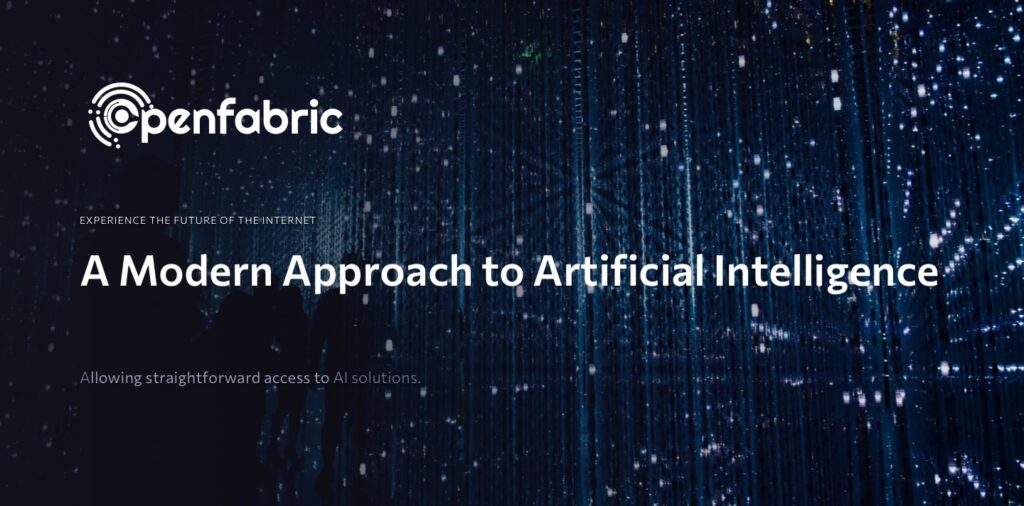
November 17, 2021 5 minutes read
A Modern Approach to Artificial Intelligence

What Is Artificial Intelligence?
Intelligence demonstrated by machines as opposed to human beings is classified as Artificial Intelligence. This is a basic conceptual definition, however, and there are degrees to AI competency. In other words, we can delineate gradients of “intelligence” based on what a system or machine can do.
How can AI be classified
The three basic categories used to classify AI systems and machines are as follows:
- Narrow AI is the usage of reprogrammable logic and algorithms to perform specific tasks.
- General AI is a state where the computational, logical, and cognitive abilities of AI are equivalent to that of a human being.
- Super-Intelligence is when General AI evolves further and surpasses average human intelligence.
Although the AI economy is projected to grow by billions, AI itself is not widely available as a tool to the public. This is in large part due to the concentration of the share of AI markets in the hands of a few major players. This brings about stagnation in terms of development and application.
This is largely due to the serious scalability and innovation limitations in closed, centralized systems. In addition, there is unfettered access to AI by users working in different industries and verticals. They have different research and business interests can help the AI economy as a whole take considerable steps forward.
Openfabric AI Modern Approach
Openfabric has developed a blockchain-centric AI ecosystem that seeks to take advantage of the features of Distributed Ledger Technology. In the nearest future, these benefits and applications will be available to the public. The selection of this technology is not by chance; instead, it is a deliberate choice that can help us address known challenges in the AI domain. We talk about some of these challenges below.
Challenges to AI the modern approach
Decentralization
By being a decentralized ecosystem, no central authority controls the location of data or its processing. The storage scalability wins further boost the execution and governance protocols, providing significant improvements. Siloed data, centralized operation, and single points of failure will all become things of the past.
Security
Data-related issues hinder much of the advancement of Artificial Intelligence. However, they are not simply the immense need for massive amounts of data to train and execute AI algorithms. Although, that is difficult enough to accommodate but there are also privacy and integrity concerns. Thus, blockchain can help overcome data privacy, provenance, and security issues seamlessly as a built-in feature of any system.
With data security addressed, incentives for AI Innovators and Data Providers abound. Most especially when it comes to working in a collaborative environment with Service Consumers.
Interoperability
Interoperability is the cornerstone of the incentivized AI agent marketplace. It allows for the innovative collaboration of complex AI agents to deliver mutually beneficial outcomes. Together, the variety and versatility of the marketplace foster an environment where Service Consumers proverbially “shop” for the tools, applications, and solutions that best suit their needs.
The standardization of interfaces for collaboration allows for superior algorithmic composition in addition to providing better structure compared to centralized approaches. You can think of it as customizable services provision down to the user level rather than the wholesale, cookie-cutter approach preferred by large corporations.
Accessibility
No matter how good an application or service is, the golden rule holds true: simplification is difficult and complexity is easy. The team at Openfabric AI designed our platform with end-users in mind. Thus, ensuring ease of use, usability, and integrations for interacting with AI in a developer-friendly manner
Computation
The blockchain-driven platform provides a high level of trustworthiness. Additionally, it fulfills the criteria of scalability, satisfying another crucial aspect. By virtue of being decentralized, Infrastructure Provider stakeholders have an incentivized market environment. Where they participate in by renting out underutilized infrastructure.
The Smart Economy
Openfabric promotes innovation with a robust, fair, and built-in exchange mechanism to cater to the demand and supply of AI services provided by its network of AI Innovator stakeholders.
Data Streams
One of the larger challenges with AI is the sourcing of data to train AI algorithms. By utilizing the blockchain to provide a secure, transparent, and trustless ecosystem, Openfabric puts in place the infrastructure required to support massive data flows. This is in conjunction with a Smart Market and a collaborative Innovation Engine that creates the conditions for superior data streams to emerge.
Data Availability and Privacy Challenges with Artificial Intelligence on the Edge
Blockchain technology gives us the underlying infrastructure for a seamless and secure flow of encrypted data. This is a technical leap forward that facilitates encrypted data flow and it opens the doorway to solving a key problem faced by anyone working in the AI or data spaces, which is access to private data in different jurisdictions. With the blockchain-based Openfabric solution it will no longer be required for data to move unencrypted for analysis. Algorithms can run behind firewalls in what would be an “AI at the Edge” and localized implementation near the Service Consumer.
Furthermore, this opens the pathway to further development for Local, Federated, and Cooperative models to emerge in a safe and secure ecosystem that is not restricted by:
- Limited access to data on privacy or legal grounds.
- Companies that are not willing to share private data.
- Government rules and regulations.
Therefore, the blockchain essentially becomes the access layer for providing of performance, transparency, and security in data processing. The Openfabric ecosystem promotes the seamless integration between Data Providers and AI Innovators. Openfabric has the potential to create an innovation engine that will secure the intellectual property of developers and stimulate fair competition between all participants within the ecosystem. However, this is be possible only with major challenges being addressed regarding interoperability, Smart Economy, and security,
To learn more about the Internet of AI as imagined by Openfabric, please visit https://openfabric.ai.

